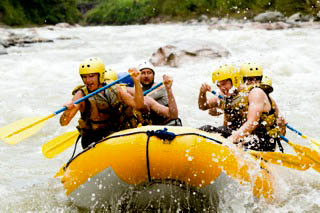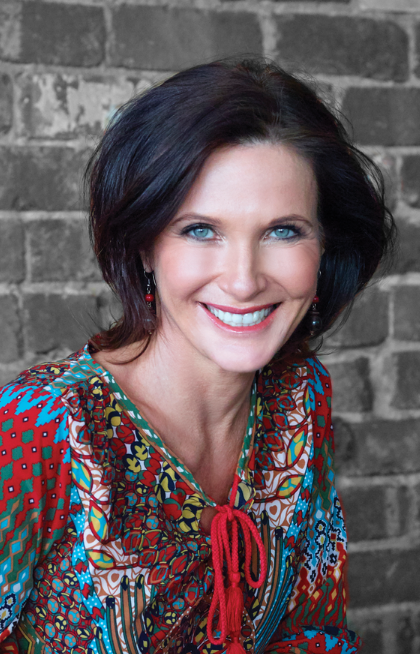Know What to Fear: Where are misplacing your fear?

(Reprinted from my CourageWorks column in Forbes magazine)
While many of our fears are valid, many of them actually stifle our happiness and success. In an increasingly fearful world, knowing what to fear (and what not to fear) is increasingly important.
Moving down my family’s travel bucket list, we did our first white water rafting adventure during our recent trip to Nepal. While I was a little apprehensive at first, once we were kitted out in all our safety gear I figured there was nothing to be anxious about.
After the first set of rapids my children at the front of the raft excitedly announced that we had an unpaid traveller in our midst, in the form of a snake. I may have grown up on a farm where snakes weren’t uncommon but I am far from a fan. So discovering a snake slithering around the bottom of our raft was not exactly my idea of a fun excursion.
Since I was sitting in the back of the raft, I couldn’t see how big it was but in my imagination I’d blown it up into a King Cobra sized dimensions. As I maneuvered as far into the middle of the raft as possible I looked ahead to see we were quickly approaching a set of rather intimidating rapids that required me my full engagement back at the oars (and nearer the snake). I had to make a choice: was this snake a greater threat or the swirling rapids and rocks? The rapids won.
On beaching our raft downriver the guides managed to throw our freeloading passenger into the river. As it quickly disappeared downstream it brought home how often we can focus our fear on the wrong things. Of course there is no escaping that there are valid things to be afraid of. But whatever challenges and choices you are facing, be mindful of where you might be magnifying your fears, coming up with all sorts of worst case scenarios that are irrational or unrealistic, and underestimating your ability to handle the consequences of them.
While many of our fears are valid, many of them actually stifle our happiness and success. In an increasingly fearful world, knowing what to fear (and what not to fear) is increasingly important.Fear is both a potent and indispensable emotion. It can save your life but it can also stifle it. Profoundly. In an increasingly fearful world, we have to become ever more discerning about what fears we pay heed to, and vigilant of where our fear of the wrong things is harming us, rather than protecting us from harm.
In The Gift of Fear, personal security expert Gavin De Becker writes, ‘Far too many people are walking around in a constant state of vigilance, their intuition misinformed about what really poses danger’. Genuine fear is a signal intended to be very brief. It’s a servant of your intuition. But too often fear about what you don’t want to happen gets in the way of pursuing and accomplishing what you do.
Not only that, but if you’re feeling fearful all the time, there’s little or no capacity left for those times when fear is genuinely needed. As De Becker writes, ‘Precautions are constructive, whereas remaining in a state of fear is destructive’. Rock climbers will tell you it isn’t the mountain that kills, it’s the panic. The very fact that you fear something is solid evidence that it’s not happening.
Like every emotion, fear is contagious. The more often you feel fear, the more pervasive it becomes in your life. Left unbridled it can colour every perception and undermine every experience. Therefore, the more you succumb to your fears—rational or not, perceived or real—the more they set up residence in your psyche and dominate your emotional landscape. From your career and business to your relationships and family life, fear can subtly sabotage you from having what you want.
While many of our fears are valid, many of them actually stifle our happiness and success. In an increasingly fearful world, knowing what to fear (and what not to fear) is increasingly important.
Where do you need to stop playing so safe?



